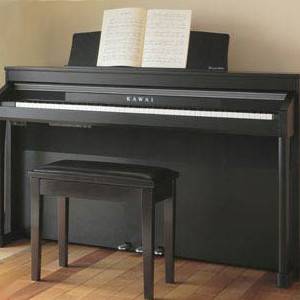
 HERE ARE MANY REASONS WHY a parish might choose to buy a digital piano in favour of an organ. The instruments are much more widely available, pianists much more plentiful than organists. The machines themselves are generally simpler with only one keyboard and without all those fiddly stops all over the place.
HERE ARE MANY REASONS WHY a parish might choose to buy a digital piano in favour of an organ. The instruments are much more widely available, pianists much more plentiful than organists. The machines themselves are generally simpler with only one keyboard and without all those fiddly stops all over the place.
They may not be my favourite reasons, but for whatever reason you may find yourself in the situation of trying to make a digital piano sound like an organ.
Many digital pianos come with an “organ” setting – even a “church organ” sound, but I don’t know who chooses these sounds. The few I have heard are quite brash. For accompanying singing, especially chant, you probably want something a bit more mellow. Our parish piano (a Kawai CA97) has a sound called “chiffy tibias” which is passable.
The really frustrating thing is the touch sensitivity, which is nothing like an organ. The volume of each note depends on how hard it is struck and there is no expression or swell pedal to soften the blow. If you accidentally play an extra verse there is no easy way to smoothly reduce the volume and finish quietly without removing a hand from the keyboard to adjust a very sensitive volume knob.
However, you can by-pass the piano’s piano-ness and use software like Hauptwerk or Grand Orgue to bring a much more believable organ sound into your choir loft.
You will need :
- a midi controller 49-61 keys with usb interface
- an expression pedal to suit the midi controller
- a music stand
- a laptop with Hauptwerk or Grand Orgue installed
- a 3.5mm Stereo Audio Cable, Male to Male

Fold down the piano’s music stand and rest the midi controller on top.
Place the laptop on the piano bench and plug the headphone socket to the piano’s line-in socket. Plug the midi controller into the laptop via the usb cable.
Plug the expression pedal into the midi controller and arrange for easy access.
Fire up your laptop and adjust the software and various volume controls to a good level.
Enjoy your organ!
Note, this pretty much reduces the use of the digital piano down to a pair of speakers. You could have this sort of set up with an amplifier – rather like an electric guitarist would.
Next time you see someone lugging various gig bags into a church, perhaps this is another organ enthusiast.
